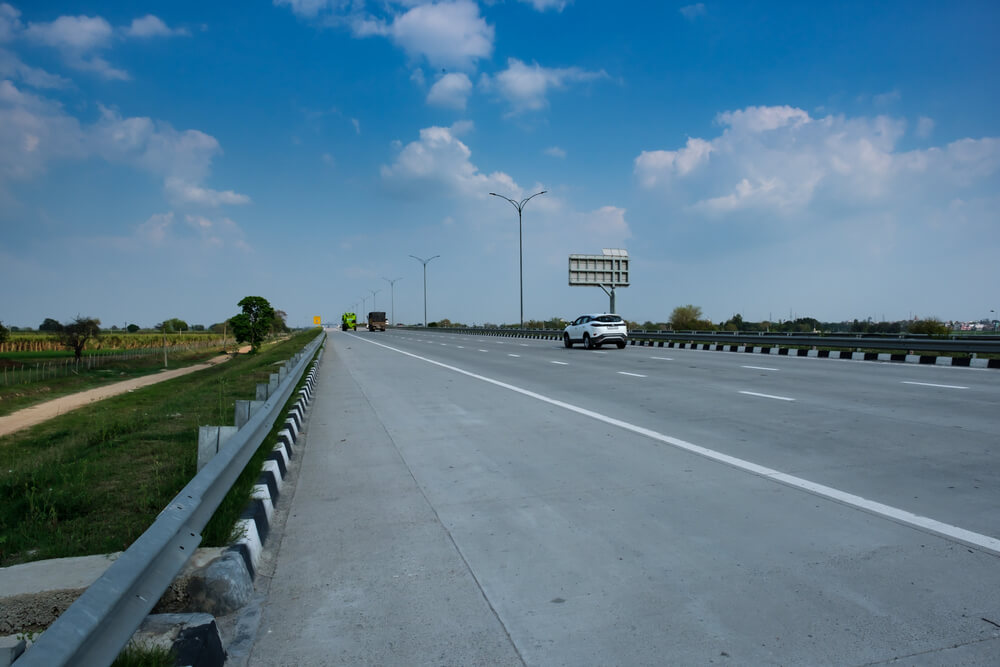Overview | Special Features | FAQ
A lot of expressways are often made to ensure that the different cities can be connected seamlessly or even the areas between the cities enjoy an excellent network too. One such expressway is the Delhi Mumbai expressway. This expressway will connect New Delhi and Mumbai. It is going to be an eight-lane expressway and is going to be the longest one globally. Some other popular expressways are the Mumbai Pune Expressway and the Mumbai Nagpur Expressway.
The National Highways Authority of India is in charge of this expressway which is currently under construction. It is expected to be completed by December 2023 and will cut down the travel time between the two cities by half. Right now, it takes 24 hours to move from one city to the other while after the expressway is made, the time will come down to 12 hours.
An Overview
- The Delhi-Mumbai expressway is going to be 1350 km long
- It will be an eight-lane highway with the possibility of expansion up to 12 lanes
- The foundation stone was laid in March 2019 by the Union Road Transport and Highway Minister Nitin Gadkari
- The expressway is going to pass through five states
- As much as 15,000 hectares of land will be used for making this expressway
- This will start from Gurgaon in Haryana and will end in Mumbai in Maharashtra
- This expressway will create a funnel of employment opportunities for everyone involved as it will hire both skilled and unskilled labour
- The net cost of this project is approximately Rs. 1,00,000 crores and this also includes the cost of land possession
- There are going to be 52 construction packages in which this project will be implemented
- A special-purpose vehicle has been formed for operating and constructing this route
- Right now, several bridges are under construction as this expressway will have several bridges
- As many as 60 bridges, and 17 flyovers. 17 interchanges, and 8 road over bridges will be made in Gujarat
- The construction work is going to be segmented into four different sections
Special Features Of The Expressway
Here are some of the special features that this expressway has.

The amenities
This expressway is going to offer a lot of different roadside amenities. These will include but are not limited to hotels, food courts, single-brand food stores, fuel stations, charging stations, and more. They will also have trauma centres and helipads at regular intervals too
Eco-friendly designs
The whole route is being planned to be very eco-friendly as more than 20 lakh trees will be present along the route. Drip irrigation will be used to water them. It is estimated that 850 million tons of carbon dioxide emission will be cut down via the tree plantation drive.
Wildlife crossing
The wildlife will remain untouched as overbridges and tunnels will be made to ensure seamless movement and co-existence. This expressway will cross five natural wildlife crossings and it won’t hinder any of them.
Electric highway
As per the ministry, plans are in place to make one stretch as the e-highway. Here, buses and trucks will be able to run at a whopping speed of 120 km/hr. The congestion will be heavily lowered as there is going to be a drop of approx. 70%.
So, this is likely to be one of the top expressways that will bring in a lot of traffic ease and ensure better connectivity as well.
FAQ
What is the length of the Delhi-Mumbai expressway?
This expressway is going to have a total length of 1350 km and it will connect two of the big metro cities of India
When will the expressway be completed?
As per estimated reports, the Delhi-Mumbai expressway is likely to be fully completed by December 2023. Construction work is ongoing and in full swing at the moment.
Which states will the expressway pass through?
This expressway is going to cover five states namely Haryana, Rajasthan, Madhya Pradesh, Gujarat, and Maharashtra.
What is the budget for this expressway?
The net estimated budget for this project is close to Rs. 1,00,000 crores.
